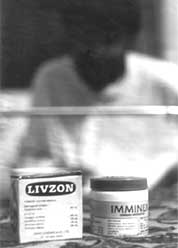Drug resistant HIV
 anti-hiv drugs could be useless for nearly half of patients within four years, according to a computer model prediction.
anti-hiv drugs could be useless for nearly half of patients within four years, according to a computer model prediction.
The new study, using data from the San Francisco, usa- based gay community, suggests that by 2005, at least 42 per cent of hiv cases could be drug resistant. In 1997, the figure was less than five per cent.
The study predicts the transmission of drug-sensitive and drug-resistant cases of hiv between 1996 and 2005. The rate depended on the number of infections, the level of drug treatment and the rate at which resistant strains evolve within a person. The researchers estimate that for every case of resistance caused by treatment, one other infection will be prevented.
The model predicted that 28.5 per cent of hiv cases were drug resistant in 1999,which was almost exactly correct. The researchers found that unprotected sex is unlikely to be the cause of an epidemic of drug resistant strains. Instead, resistance appears primarily to be caused by patients who are taking the drug cocktails not sticking to a strict medication regime. Any deviation from the treatment programme can allow the virus the opportunity to replicate and develop resistance. This presents a serious problem as the drugs have vastly improved the health of people infected with hiv. Resistant strains can multiply unchecked, suppressing their host's immune system so that illness and death follow.
"The emphasis needs to be on stopping drug resistance in the first place, rather than preventing transmission of resistant strains,' says lead researcher Sally Blower, researcher at the aids Institute at the University of California, Los Angeles, usa. She points out that doctors need to be as vigilant as patients in making sure correct treatment programmes are followed. She recommends creating specialist treatment centres for the disease.
The results of the study have serious implications for developing countries, where it may be even more difficult to ensure medication is taken correctly. "For resistance to occur you need the virus to evolve,' says hiv specialist Andrew Phillips from the Royal Free Hospital, London, uk . If patients follow an intensive regime that includes three different classes of drugs, the virus cannot replicate enough to evolve. Resistant strains take hold when patients continue to take drugs that are unsuccessful at lowering the viral load. If it evolves in the presence of drugs then it gets a chance to out compete the drug-sensitive virus (Nature Medicine , Vol 7, p1016).
Related Content
- HIV drug resistance: brief report 2024
- World malaria report 2023
- Report on the global action plan on HIV drug resistance 2017–2021
- Bracing for superbugs: strengthening environmental action in the one health response to antimicrobial resistance
- Global antimicrobial resistance and use surveillance system (GLASS) report 2022
- Unequal, unprepared, under threat: why bold action against inequalities is needed to end AIDS, stop COVID-19 and prepare for future pandemics
